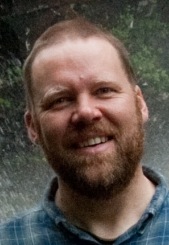$3 million grant to train new scientists to collaborate on conservation challenges
A new type of forest is taking root in Puerto Rico’s abandoned sugar cane fields. The new stands are full of invasive trees, but they harbor large numbers of endangered native bird species. From the perspective of conservation science, are these forest parcels good or bad? And how should they be managed?
The world’s conservation biologists are struggling to deal with new situations like this-where major shifts in climate and land use are creating novel ecosystems and no-analog climates. UW–Madison is gearing up to help train more graduates students to deal with these complex problems, with the support of a $3 million grant from the National Science Foundation.

Radeloff
“We’re moving into uncharted territory, where past trends are no longer good predictors of what will happen in the future, which makes things very difficult for conservationists,” says Volker Radeloff, a professor of forest and wildlife ecology who is leading the effort. “The grant will allow us to train a new generation of scientists to be proactive in this changing world-to focus on finding solutions, and not just better ways to measure how things are changing.”
A novel feature of the five-year Integrative Graduate Education and Research Traineeship grant is that the 24 doctoral students it will support will be collaborating with scientists outside of their home disciplines. Traditionally, conservation biologists train as ecologists and then pick up skills in other fields-such as genetics, statistics or remote sensing-as needed to complete their projects. But Radeloff likens this go-it-alone approach to cello virtuoso Yo Yo Ma deciding to pick up the violin or the trombone.
“Yo Yo Ma doesn’t try to play other instruments, but he can play very nicely with others,” says Radeloff, noting Ma’s work with symphonies, the Silk Road Orchestra and an all-star bluegrass group. “That’s what we want to try to emulate as a model for our graduate education. We want people who are superbly trained in their field, but who also have great collaborative skills.”
“We need true geneticists, statisticians, computer scientists, biologists, ecologists, botanists. We need all of these folks who are at the cutting edge of their fields to work together on these problems,” says Radeloff.
The first cohort of IGERT trainees will be selected this fall and start their fellowships next January. In addition to conducting research, they will participate in weekly IGERT lab meetings and have opportunities to work with outside clients, such as the Wisconsin Department of Natural Resources, to study and address real-world conservation issues.
This summer, a group of faculty, staff and students connected to the IGERT project will take a bus tour around the state, visiting sites where landscapes are changing and where notable conservation efforts are taking place. Starting this fall, the group will gather for monthly “conservation salons,” and there will be courses available to help prepare starting graduate students to become IGERT dissertators down the line.
Radeloff hopes that the grant will foster a culture of collaboration within the university’s diverse conservation community that lasts far longer than the grant itself. His wish seems possible, given that many of the involved faculty had already been meeting to discuss their work and collaborating on projects for a number of years before applying for the grant. The IGERT was the first opportunity for the whole group-which Volker describes as “a good orchestra”-to work together on something.
“The awarding of this IGERT grant is a tribute to the creativity and hard work of the principal investigators,” says Rick Lindroth, associate dean for research at the College of Agricultural and Life Sciences. “It will ensure that we remain front and center in the training of scientists to grapple with these complex and critically important issues.”
IGERT faculty include Volker Radeloff, forest and wildlife ecology (FWE) (principal investigator); Anthony Ives, zoology (co-PI); Susan Millar, Morgridge Institute, Wisconsin Center for Education Research (co-PI); Adena Rissman, FWE (co-PI); Claudio Gratton, entomology (co-PI); Jennifer Alix-Garcia, agricultural and applied economics; Murray Clayton, plant pathology; Katherine Curtis, community and environmental sociology; Noah Feinstein, School of Education; Michael Ferris, computer sciences, Wisconsin Institutes of Discovery; Patty Loew, life sciences communication; Holly Gibbs, geography; Erika Marin-Spiotta, geography; Peter McIntyre, Center for Limnology; Francisco Pelegri, genetics; Anna Pidgeon, FWE; Tim Van Deelen, FWE; Jake Vander Zanden, Center for Limnology; Dan Vimont, atmospheric and oceanic sciences; Jack Williams, geography.
Tags: federal relations, research



